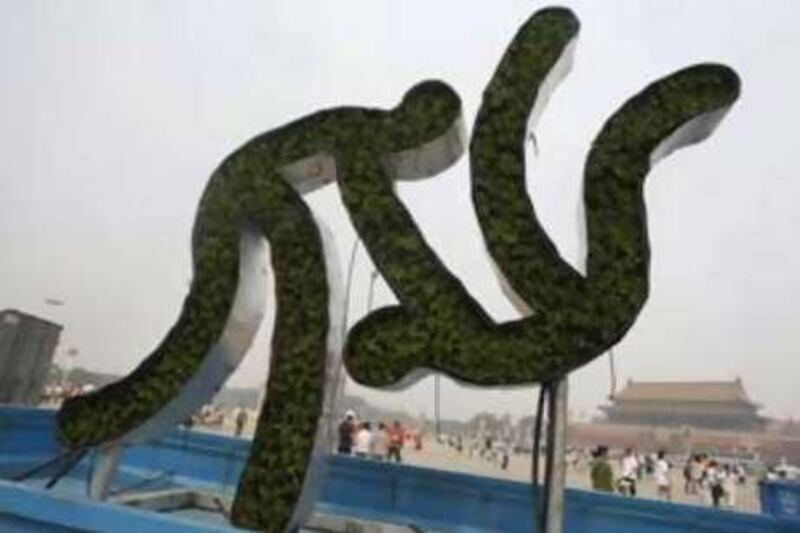BEIJING // China has designated areas in three Beijing parks for demonstrations during the Olympics, an official said today, with the Games already a lightning rod for protest over issues ranging from Darfur to Tibet. Designating "protest pens" is in line with practice at past Games because the International Olympic Committee charter prohibits demonstrations or "political, religious or racial propaganda" at Olympic venues or sites.
But it is nonetheless a surprise in host China, where Communist leaders frown on public protests, often viewing them as a threat to stability and its hold on power. "We have dedicated places for demonstrations at several parks," said Liu Shaowu, director of the security department at Beijing's Olympics organising committee. "Chinese law protects the legal right of people to hold lawful demonstrations and marches."
The parks are in the Beijing districts of Fengtai, Haidian and Chaoyang, spanning three far-flung areas of the sprawling capital. Activists advocating for a range of issues, from China's policies in Tibet to its engagement with Sudan to its record on media freedom and human rights, have long used the awarding of the Olympics to Beijing as a platform to press their causes. But protests related to the Beijing Games burst on to the world stage after unrest in Tibet in March led to anti-Chinese demonstrations and counter-protests along the international leg of the Olympic torch relay, prompting ugly scenes.
Mr Liu said demonstrators would need prior approval to hold protests, but it was not clear if police would grant approval for any marches outside of the dedicated parks. "If they have lawfully applied and the demonstration is approved, Chinese police can, according to law, protect citizens' rights," he said. Mr Liu declined to say whether anyone had applied yet or whether there were certain causes or groups whose applications would be rejected, deferring such questions to the Beijing police and municipal government, who he said would handle applications.
Beijing police had no immediate response to a faxed request for comment. But Mr Liu stressed that preserving security and "social order" would be the paramount concerns during the Aug 8-24 Games. "During the period of the Olympic games, we have to safeguard smooth traffic, a good environment and good order in the area of each competition," he said. *Reuters





